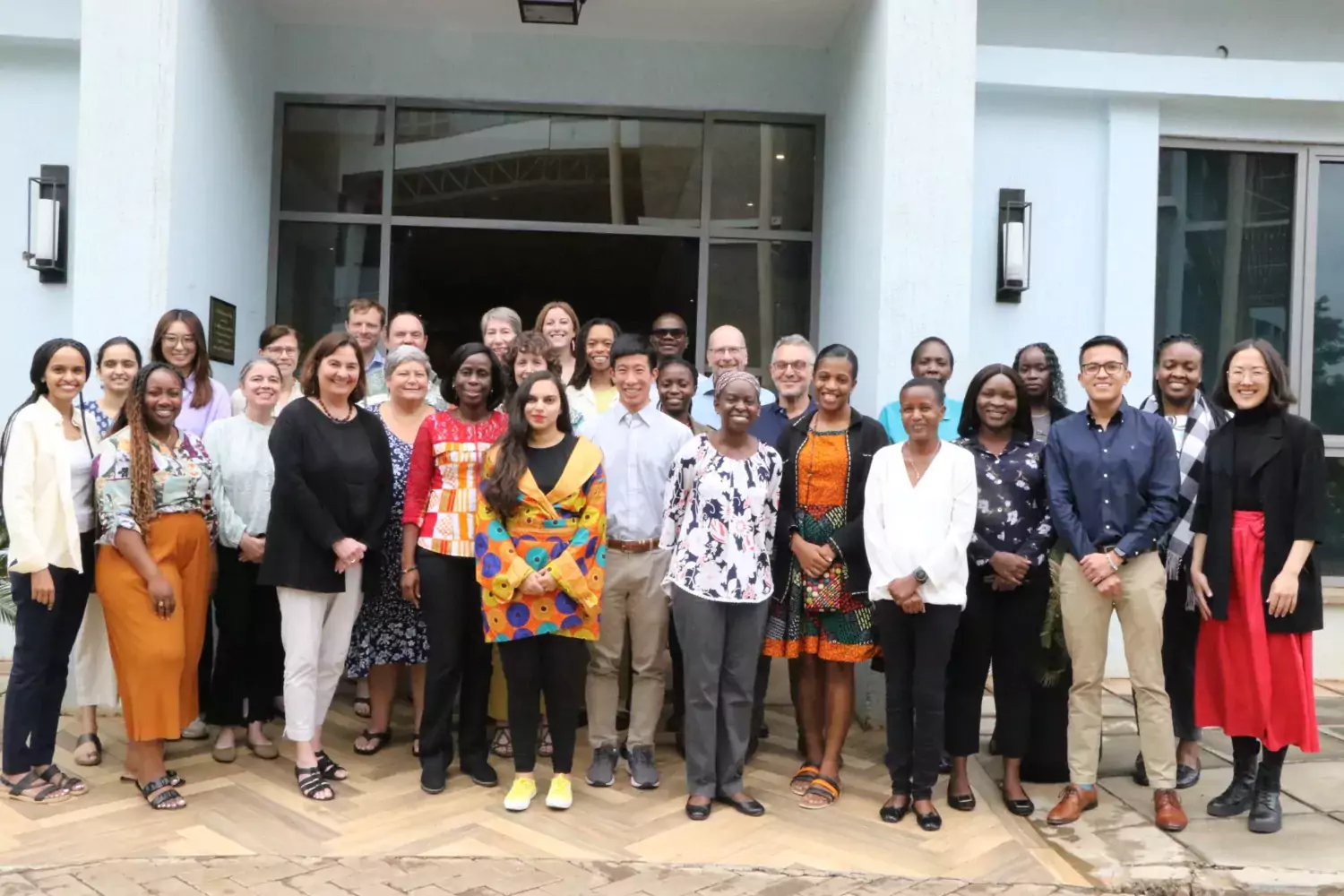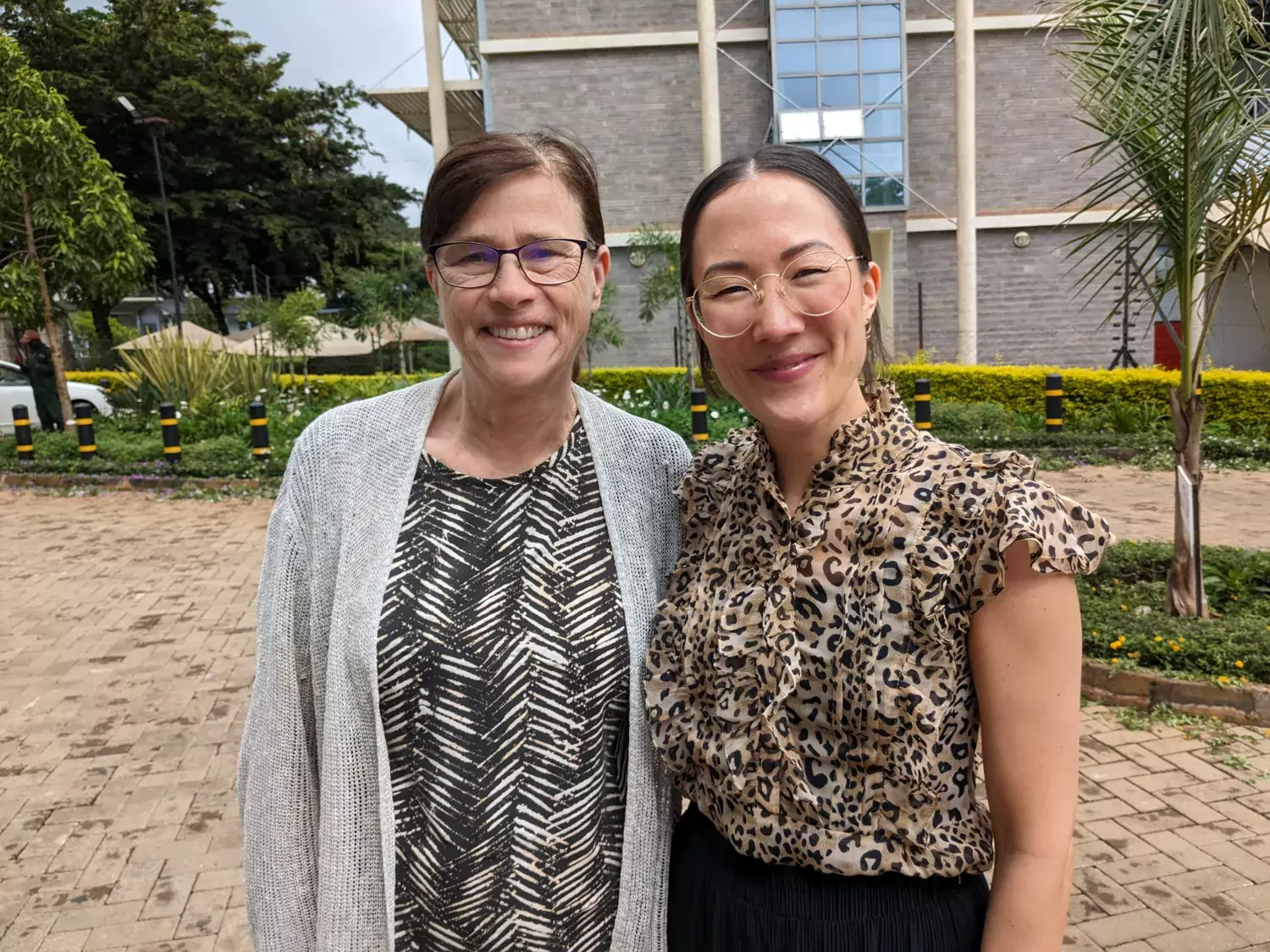Commissioners Olivia Biermann and Mariam Claeson co-lead workstream in the second Lancet Commission on Adolescent Health and Wellbeing

Global Child Health and Sustainable Development Goals team members Olivia Biermann and Mariam Claeson are commissioners on the second Lancet Commission on Adolescent Health and Wellbeing. Together they co-lead the commission’s workstream on the political economy of adolescent mental health and well-being. Last month, May 9-11, they visited Nairobi, Kenya for a midterm meeting to present and discuss the progress of the workstreams of the commission.
It has been six years since the report Our future: a Lancet Commission on adolescent health and wellbeing was launched. Still, the trajectory of health and wellbeing of adolescents has not changed, with worsening or stagnated indicators, while new threats have emerged requiring collective and urgent action.
In 2022 the second Lancet Commission on Adolescent Health and Wellbeing was announced bringing together 41 commissioners from across disciplines, sectors, and geographies. Emphasis has been put on including young commissioners, many living and/or working in Africa as half of the world’s young people are expected to grow up in sub-Saharan Africa by the end of the century.
The commission uses an intergenerational partnership approach with workstreams co-led by senior academics, emerging and early-career research leaders, and youth advocates. The commission also focuses on meaningful youth engagement and building strong partnerships with young people. Empowered actors and leaders among youth are key in finding solutions to challenges facing their generation.

Workstream on political economy of adolescent mental health and well-being
Two of the commissioners are Mariam Claeson and Olivia Biermann who co-lead the commission’s workstream on the political economy of adolescent mental health and well-being.
They are working with partners on an analysis aiming to provide a comprehensive understanding of the factors that shape the global prioritization of adolescent mental health and wellbeing, more specifically prioritization of funding and action for impact at scale. This work may enable concerned advocates to better strategize to reduce fragmentation and mobilize resources in support of collective multisectoral action. The aim is therefore to ultimately help raise the global political priority of and investment in adolescent mental health at large.
“The commission can help put adolescent mental health and wellbeing on the global agenda.”
Mariam and Olivia conduct a study that triangulates data from interviews with key-informants with experience and knowledge in adolescent mental health; focus group discussions with adolescents who are mental health advocates, some with lived experience of mental health problems; and a document review, followed by thematic analysis and consultations.
The Commission report in 2024
The second Lancet Commission on Adolescent Health and Wellbeing report will be launched in 2024, including recommended actions to reduce barriers to investment in adolescent mental health and a new framing of adolescence within political and economic discourse, one which challenges entrenched problem-based narratives around young people. Furthermore, it will highlight the importance of an intergenerational perspective, propose innovative and scalable multi-sectoral actions for adolescent health and wellbeing and extend earlier analyses of the social, cultural, and ecologic determinants of adolescent development.
Next steps for the commission is the finalization of the work in 2023 including a tentative peer-review meeting by the end of this year and a youth consultation on how to take forward the recommendations of the global political economy work, in connection with the publication of the report next year.
Professors Alex Ezeh, Russell Viner, and Sarah Baird are co-chairs of the new Commission, supported by Steering Committee members: Professor Peter Azzopardi, Professor Susan Sawyer, Dr Shakira Choonara and the late Professor George Patton. Professor Stefan Swartling Peterson and Carolina Mikaelsdotter are also contributing to this work and the advocacy agenda.
